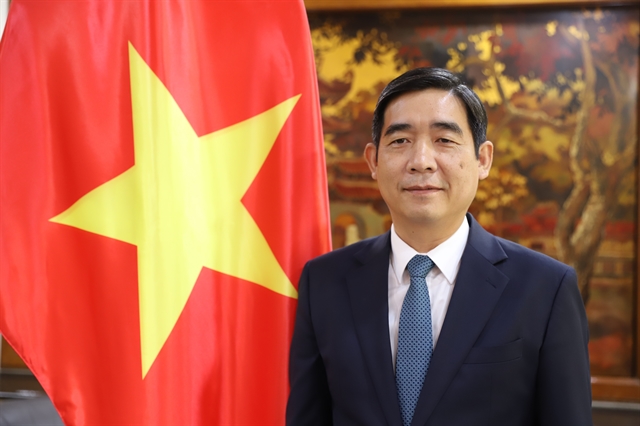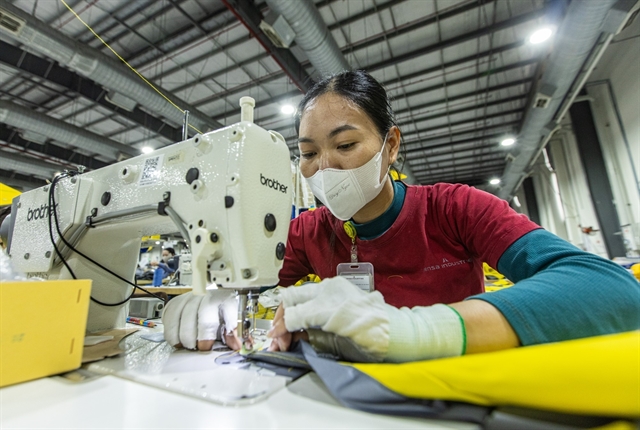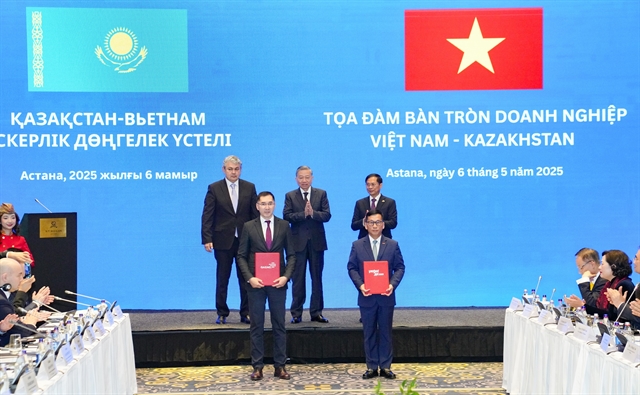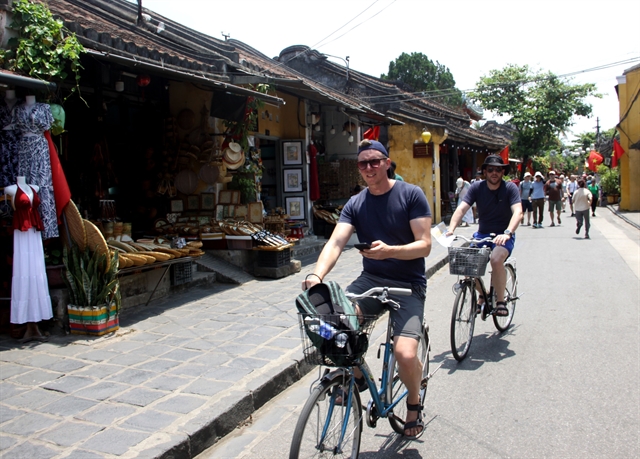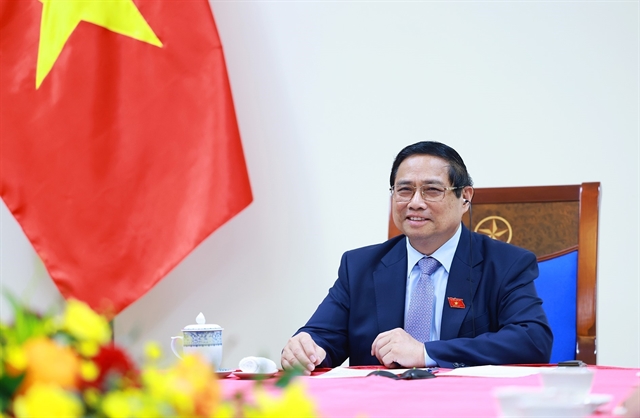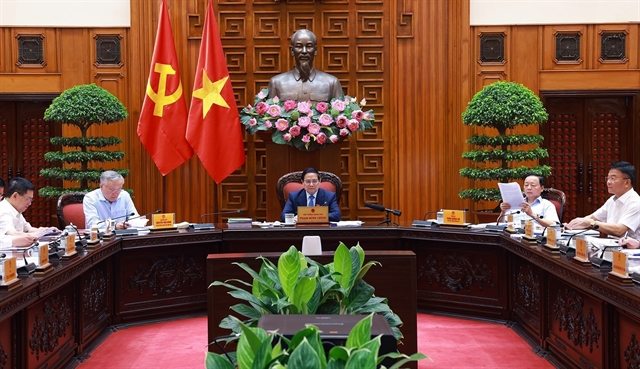 Society
Society
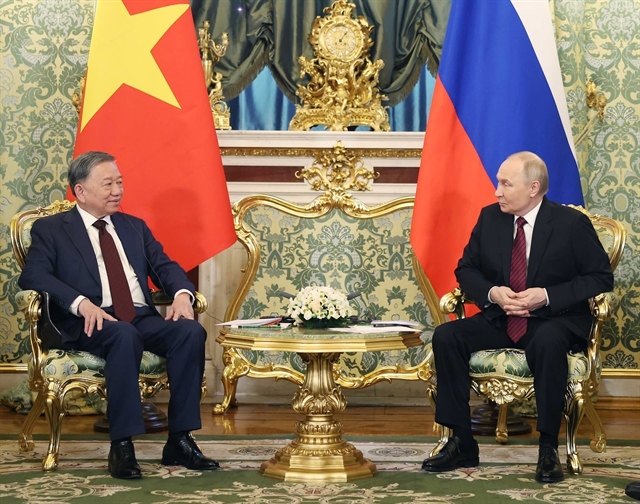
The 6th Global Environment Facility (GEF-6) closed in the central city yesterday with nearly 30 countries pledging to create a US$4.1 billion fund to protect the future of the planet and human well-being.
 |
| A corner of the Sơn Trà Nature Reserve in Đà Nẵng city. More than 1,200 participants from 183 member countries joined the 6th Global Environment Facility (GEF-6) from June 23-29. — Photo courtesy Lê Phước Chín |
ĐÀ NẴNG — The 6th Global Environment Facility (GEF-6) closed in the central city yesterday with nearly 30 countries pledging to create a US$4.1 billion fund to protect the future of the planet and human well-being.
“A clear majority of donors have stepped up their support for the GEF, signaling the urgency of the global environmental agenda, and trust in the GEF to help tackle the problem and achieve even greater results,” said Naoko Ishii, GEF CEO and Chairwoman. “We need to forge the partnerships that will help transform the food, urban and energy systems in an integrated way. The GEF-7 is designed to do just that.”
She said at a closing ceremony press conference that she was happy that GEF-6 had developed a strategy and policy on how to protect the global environment leading up to the GEF-7.
“The GEF-6 was an opportunity for us to think about what we will do in the next four years, and how we can care for nature. GEF-6 ended, but the next cycle has begun,” she said.
“We need changes on how to produce food, traffic, energy, power production, urban areas and economic systems.”
Ishii also highly appreciated the commitment of the Việt Nam government in pursuing green growth and dealing with plastic waste in the ocean as well as building regional partnerships in plastic waste management.
She said Vietnamese Prime Minister Nguyễn Xuân Phúc’s message at the GEF-6 opening ceremony was clear and inspiring to participants, as he said Việt Nam will not sacrifice the environment for economic growth and the country will reach sustainable development goals.
Ishii noted how the GEF’s new investment cycle (GEF-7) puts an emphasis on addressing the underlying drivers of environmental degradation and will result in more climate benefits.
“In GEF-7, the GEF will double the target for greenhouse gas emissions mitigated from GEF projects compared to the last funding cycle,” she said.
Vice minister of natural resources and environment Lê Công Thành confirmed that the government of Việt Nam will change from the traditional economic model into a circular economy with the participation of the private sector, community and government.
He said the country will reduce the disposal of plastic waste into the ocean and gradually ban the use of plastic bags and single-use cups and straws.
Thành said hosting the GEF-6 Assembly proved that Việt Nam has progressed in promoting sustainable development and environmental protection.
Achim Steiner, United Nations Development Programme (UNDP) administrator and Vice Chair of the UN Sustainable Development Group said: “The GEF-6 Assembly convening in Việt Nam is a welcome opportunity for the world to address pressing environmental challenges and to develop opportunities, but also to learn about Việt Nam’s experience and lessons learnt over the past 20-30 years.”
“Việt Nam has gone through two decades of significant economic transformation and has enjoyed many successes. And now the country finds itself at a crossroads in terms of its future economic development model. Embedded in that search is also the need to address environmental and sustainability challenges – climate change vulnerability, natural disasters, pollution ecosystems and biodiversity. Essentially, the protection of Việt Nam’s natural capital and wealth.”
 |
| Participants at the 6th Global Environment Facility Assembly join hands to clean the beach in Đà Nẵng city. — VNS Photo Công Thành |
Steiner also said the UNDP and Việt Nam share a long history of co-operation on national development strategies and programmes; 2018 marks the 40th anniversary of co-operation.
As Vietnam seeks to define future pathways for development, Agenda 2030 and the Sustainable Development Goals provide a useful framework. In responding to the fourth industrial revolution, technology choices will play an important role for economic growth and employment, coupled with opportunities associated with the emerging green economy and markets in which Việt Nam must compete, he added.
The GEF-6 also recognised that the new strategy doubles the target for greenhouse gas emissions mitigated from GEF projects compared to the last funding cycle, and increases by almost 50 per cent the targets for the protection of biodiversity and valuable ecosystems.
“Today, the international community again gave GEF a strong vote of confidence through the endorsement of a $4.1 billion financial support package for the next four years. With this renewed mandate, GEF will be able to continue its important role as an impact investor in environmental programs around the globe,” said Axel van Trotsenburg, World Bank Vice President, Development Finance, and co-chair of the replenishment meeting.
GEF-7 comes at a critical time for the world, and will help ensure that the hopes and aspirations of millions of people are met without stretching Earth to a breaking point.
Peter Thomson, UNDP Special Envoy for Oceans affirmed that Việt Nam’s more than 3,000km coastline is facing challenges such as deteriorating coastal ecosystems, rising sea levels and waste. The UN will continue to address these issues in Việt Nam in the future.
“Climate change and sea level rise are closely related and what happens on land also affects the sea. The government of Việt Nam should issue strict policies on environmental protection in the fields of agriculture, tourism to raise people’s awareness on their responsibility to the oceans and to implement the Millennium Development Goal on Clean Water and Coastal Cleanup," said Thomson.
The GEF6- Assembly drew the participation of more than 1,200 participants from 183 member countries.
Since 1991, the GEF has provided over $17.9 billion in grants and mobilized an additional $93.2 billion in co-financing for more than 4,500 projects in 170 countries. — VNS



